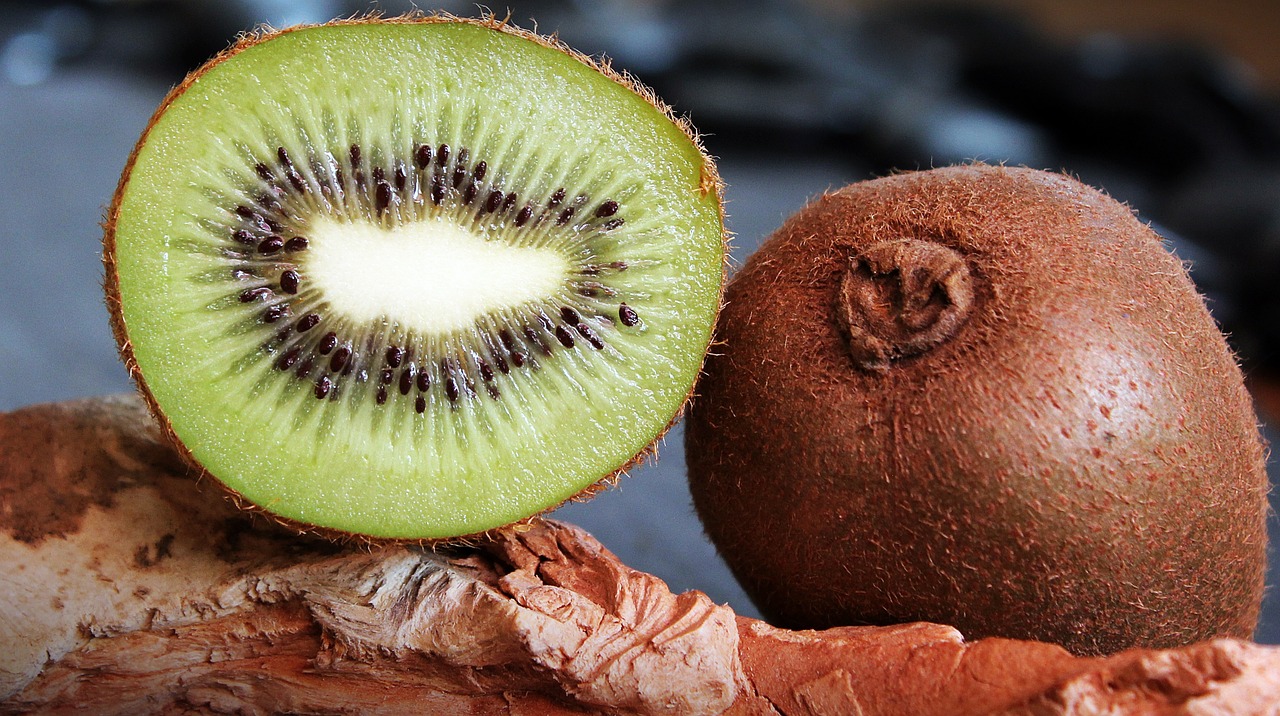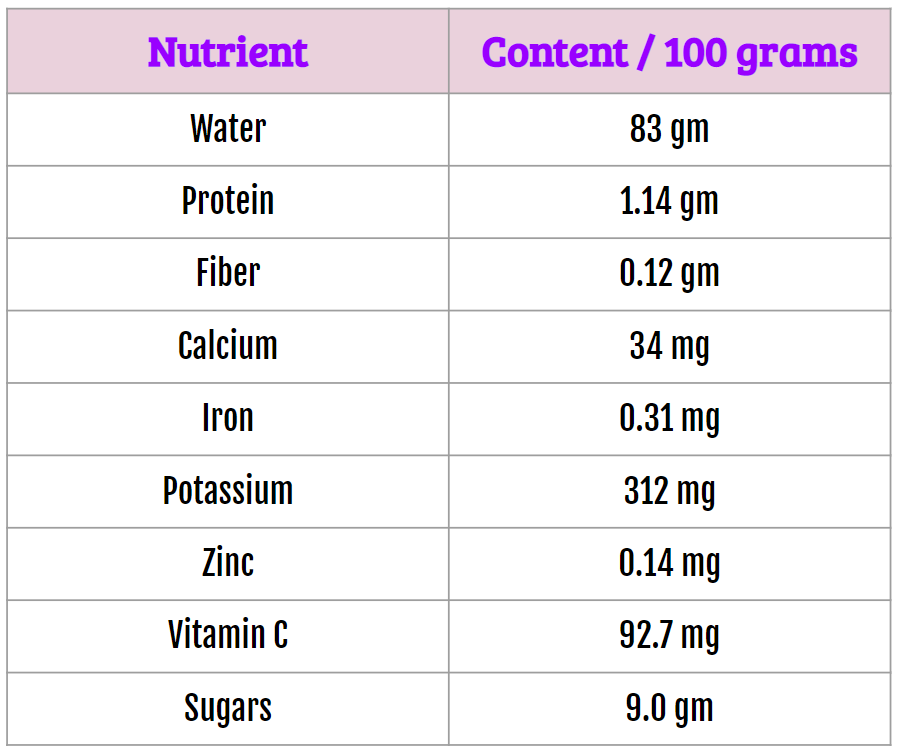
7 Reasons Why You Should Not Ignore Kiwifruit
Kiwifruit is not really that popular in India, though I personally feel it should be. A native of China, the kiwifruit is a dynamic fruit loaded with nutrients.
In India, it has gained some exposure as a fruit that can help manage patients with dengue fever. But that’s just the tip of the iceberg.
Today, I will discuss the various reasons why you should never ignore the kiwifruit when you are out shopping.
The Kiwifruit
The kiwifruit is the fruit of the woody, deciduous vine belonging to the genus Actinidia. It was previously called the Chinese Gooseberry or mihoutau, being native to China for centuries.
Over the years, it has been grown in New Zealand, Chile, France, Japan and the United States, and is exported globally to various countries, including India. This explains its high cost in our country (an average single kiwifruit in India costs around Rs 25).
The fruit is not always green in color. There are different variants, some of which are golden or yellow. The one we get in India is Actinidia deliciosa, a green fruit with tiny, crunchy black seeds and a hairy outer coat.
Health Benefits Of Kiwifruit
As an ancient Chinese medicine, kiwifruit was used to cure digestive problems, hemorrhoids (piles), acidity and rheumatism (joint pains).
Nutritional Composition of Kiwifruit (table)

Source Of Vitamin C, E and Folate
When you bite into the fruit, you will be hit by a sweet, tangy note instantly. You might even grimace in pleasure.
Thats because the kiwifruit is rich in vitamin C. It contains around 80 mg to 120 mg of vitamin C per 100 grams of fresh fruit.
Vitamin C is an essential vitamin that the body gets only through diet. It is essential in the synthesis of collagen, which is responsible for keeping our skin and cartilage healthy.
Our recommended daily allowance (RDA) for vitamin C is around 70 – 90 mg per day, with an upper limit of 2000 mg daily. However, consumption of over 1 gram per day does not provide much benefit, as less than 50% will end up being absorbed.
It is also important in the synthesis of numerous hormones and in DNA synthesis.
Of course, with the recent COVID-19 infection affecting humans globally, vitamin C has been in the spotlight as a powerful immune booster, which it is.
The vitamin C also helps in better absorption of iron from the diet. So if you are low in iron or have anemia, then including kiwifruit with your iron rich diet can be very helpful.
An interesting study was published looking at kiwifruit and how it could improve vitamin C levels. In this study, the subjects were asked to consume half a kiwifruit daily for 4 weeks, then 2 kiwifruits daily for 6 weeks, and then 3 per day for another 4 weeks.
At the end of the study, they found that while half the fruit helped elevate levels of vitamin C in the blood, a whole fruit would be required to get the required levels. With 2 fruits, vitamin C levels reached ‘saturation’ level, and 3 fruits per day had no additional benefit.
In short, if you wish to boost your vitamin C intake and blood level, have a kiwifruit every day.
In addition to vitamin C, it is also a good source of vitamin E and folate. Along with vitamin C, vitamin E is a powerful antioxidant and fights free radicals and subsequent damage to vital organs, skin and hair.
Folate is required for normal blood production and in protein synthesis. It is an essential nutrient in pregnancy as it is responsible for the fetal spinal column development.
Useful In Hypertension
In a study comparing the effect of consumption of 3 kiwifruits per day versus foods rich in antioxidants, researchers found that the former group had a 11% reduction in their angiotensin converting enzyme activity level. This enzyme is responsible for hypertension, and is often targeted in medical therapy. Overall reductions were around 10 mmHg in systolic and 9 mmHg in diastolic blood pressure.
Normal levels of potassium in the blood are essential to keep the heart pumping efficiently.
Kiwifruit is a good source of potassium, coming a close second to banana among the fruits. It is naturally low in sodium, containing only 3 grams per 100 gram of fruit.
This makes it a good fruit to eat if you have high blood pressure. It may have some benefit in lowering your blood pressure, and this has been seen in some smokers.
That being said, most studies have only shown a ‘trend’, and not a significant change in blood pressure. Don’t rely on it to bring your blood pressure down naturally to normal values.
However, I recommend avoiding it if you have kidney disease, as potassium can accumulate in the blood if consumed in high quantities.
Improves Your Digestive System Health
Constipation and irritable bowel syndrome (IBS) are common problems in India. Treating IBS can be quite difficult.
In a study looking at regular kiwifruit intake over 4 weeks by healthy elderly individuals, researchers found that those with constipation had a better stool frequency, better stool volume and softer stools. This makes the fruit useful in managing constipation.

Similarly, in individuals with IBS, a study evaluating intake of 2 kiwifruits per day for 4 weeks improved bowel function significantly.
This improvement in gut function may be related to the high quantity of soluble and insoluble fiber it contains. It contains one third soluble and two-thirds insoluble fiber. It also has the ability to hold onto water and swell up in the gut, helping bulk up the stools and in easy evacuation.
There are many other explanations on how kiwifruit improves digestive health, and I will not delve on it any more as it would just complicate this article.
If you have problems with your digestion, or have a history of constipation, try eating a kiwifruit every day. You should see an improvement in a few weeks.
Kiwifruit Is Safe In Diabetes
Green kiwi fruit which is available in India has a GI index of 39, which is low. Only 12% of the fruit is carbohydrate.
In other words, eating it if you have diabetes is not really a problem. It will not increase your sugar levels much.
Studies have found that the primary sugar in kiwifruit is fructose. This, in addition to the high fiber content in the fruit, helps keep blood glucose levels in check.
Improves Cholesterol
Kiwifruit does not contain any cholesterol. Interestingly, when it comes to metabolic parameters, kiwifruit can help lower your cholesterol.
In one particular study , regular consumption of 2 kiwifruits a day over 4 weeks improved HDL values (good cholesterol) and lowered triglyceride levels (bad cholesterol).
However, it did not have an effect on LDL levels.
Another study found that even consumption of one fruit a week had the same effect.
It is possible that the elevation in HDL cholesterol levels may be related to the polyphenols and vitamin C present in kiwifruit. The green variety increases the levels of apolipoprotein A1, a protein attached to HDL cholesterol.
Protects The Heart
I have already mentioned how HDL cholesterol levels increase with regular kiwifruit intake. This can protect the heart against heart attacks.
By lowering blood pressure, it keeps the heart under a lower deal of stress.
The vitamin C and polyphenols also benefit heart function in various ways.
However, these are not the only ways.
Another property of this fruit is its ability to lower the ‘stickiness’ level of cells called platelets. One study showed that it reduced this by around 15%. Some have gone so far as to say it is as good as an aspirin tablet.
By lowering this, it can reduce the chances of clots forming within heart arteries, a phenomenon that is responsible for heart attacks.
There is a school of thought that kiwi fruit can increase platelet count in dengue. This is not clinically proven. That being said, there is no harm in eating it if you have dengue fever, as the vitamin C may be beneficial.
Anticancer Effects
Among the many foods that can naturally lower cancer risk, kiwifruit may have some benefit too.
However, the studies are limited.
Most studies conducted to see if it has a property of lowering cancer are lab based studies looking at DNA injury and subsequent repair through the vitamin C component of the fruit.
Also, the high fiber content and digestive tract protective effects may benefit against colon cancer.
Other Effects
There may be some role for kiwifruit in healing of acute burns. This is because it has antibacterial properties, along with the property to stimulate new blood vessel formation.
This information stems mostly from rat studies.
Risk Of Allergy
One disadvantage of kiwifruit is that it can cause allergic reactions in some people when they consume it. However, the reaction is not that severe.
Some adults may experience an itchy throat and a bloated stomach. Itching skin (urticaria) and even a more serious reaction may occur, albeit rarely.
Closing Remarks
The kiwifruit is a nutritional czar, if there ever was one. If you ever get a chance, try and chow down on one now and again to reap the multiple health benefits.

Dr Vivek Baliga is a medical practitioner and the director of a diagnostic center – Baliga Diagnostics – in Bangalore. He specializes in diabetes and heart disease, and is a visiting consultant in Internal Medicine at corporate hospitals. He is married and has one son.

good info as usual.
Being in India Kiwi fruit is not available everywhere easily and also expensive.
But better than taking tablets of same price if there is any health issue.
some such fruits like berries are plenty available in cold countries.
Thank you for posting the health benefits of fruits and herbs and tips for good health.